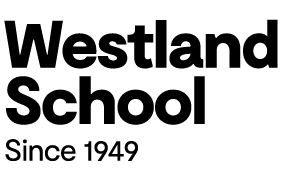More About Our History
In 1949, Joe McCarthy stalked the land forcing individuals and groups to come to terms with their values. Among those stirred into action by the prevailing mood were a group of parents and teachers for whom living one’s political and social beliefs was a way of life.
They were risk-takers, passionate in their hopes for a better world and certain that that world could begin by educating their children in a humanistic, democratic way. They understood that children displayed an innate joy of freedom in learning and were certain that a mode of education existed that could retain and heighten the pleasure of mastery while simultaneously instilling values and a feeling of responsibility to the class, the school, the community, and the world.
The Westland School opened its doors in October, 1949, in a B’nai B’rith building on the corner of La Cienega and Olympic Boulevards during the McCarthy era, a time of intense political upheaval in the United States.
The politically active founders of Westland were eager to educate children in a free-inquiry atmosphere inspired by the philosophies of John Dewey and Jean Piaget. The goals then, as now, were clear: Children need to become responsible participants in the community and they must also be encouraged to reach their fullest potential while respect is given to their individual developmental rates. To this end, children must be given concrete, direct involvement with materials with appropriate standards of workmanship. In the school community setting, individual and group needs are of equal importance.
From the beginning, Westland’s Bylaws were cooperative in nature. The School would be owned by a non-profit corporation whose voting members would be parents and teachers, thus guaranteeing a unified spirit which would be of greatest benefit to children. At the same time, parents and teachers drew up a union contract clarifying teachers’ rights and obligations. Parents and teachers were and are committed to the democratic process. Through parent education, the school works to maintain consistent expectations and values in the home and school environments. There has always been a close camaraderie and mutual respect between parents and staff.
Through the years, Westland has never been simply a private school where parents brought children to escape society’s problems. Children have always been encouraged to resolve their differences. This process strengthens them as they move on to new experiences.
Lory Titelman, Westland’s founding director, had seen schools that took such an approach—schools based on the concepts of John Dewey and the progressive education movement. She worked closely with consultant and co-founder Marie H. Briehl, a pioneering specialist in the psychological development of the child, to establish basic teaching principles and train staff. They hoped to share a program of developmental learning—learning by doing rather than by theorizing—a program that educated the whole child.
There was little money to back an experimental school, but the existing public and private schools in Los Angeles were so locked into traditional education that these concerned individuals felt compelled to open a school of their own. A non-profit, parent-owned corporation, Westland initially rented space from the B’nai B’rith on Olympic Boulevard. Parents and teachers worked together to ready the building for its September 1949 opening, when it began providing a K – 4 program for about 40 children.
Between 1953 and 1965, Westland found itself at home in a series of locations. As it moved about from the Hollywood area to West Los Angeles, it brought along its kindergarten building. Custom-built classrooms were constructed on leased land, and since insufficient funds were raised, the school once again moved on. In 1963, the school stored all of its classrooms in Gardena while other temporary quarters were being sought. Finding a permanent site for this nomadic school turned out to be a 16-year sojourn.
By 1965, Westland finally had a home of its own. Ground-breaking ceremonies on the Mulholland Drive property took place in August after which the buildings were brought up from storage and school opened in October 1965. For the first time, Westland had an auditorium and a kitchen.
Construction of a new classroom and offices was completed in 1975. Remodeling and renovation was done in 1988, which also brought the buildings up up to current earthquake codes. A new auditorium and library were built in 1997. In 1998 Westland received accreditation by the California Association of Independent Schools (CAIS) and the Western Association of Schools and Colleges (WASC). It is a member of the National Association of Independent Schools (NAIS), the Southern California People of Color in Independent Schools (SoCalPOCIS), the Independent School Alliance, and the Progressive Educators Network (PEN).

